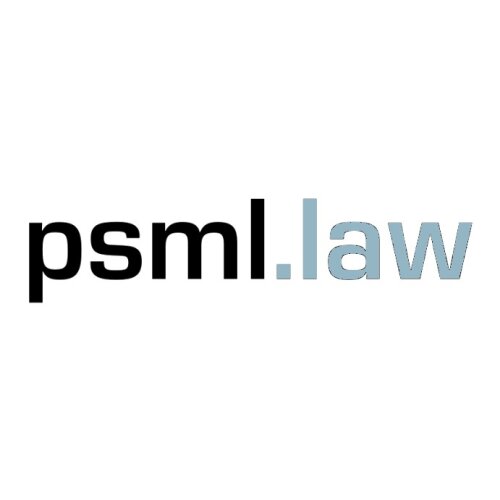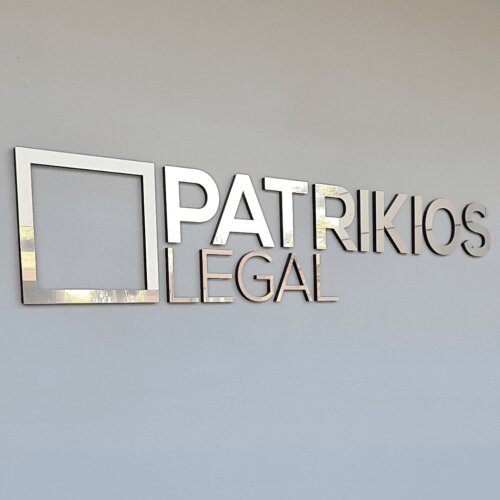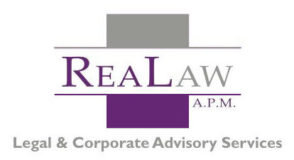Best Conveyancing Lawyers in Limassol
Share your needs with us, get contacted by law firms.
Free. Takes 2 min.
Free Guide to Hiring a Real Estate Lawyer
List of the best lawyers in Limassol, Cyprus
About Conveyancing Law in Limassol, Cyprus
Conveyancing refers to the legal process of transferring property ownership from one party to another. In Limassol, Cyprus, this process involves a series of important steps to ensure the smooth and lawful transition of property rights. The legal framework for conveyancing is based on Cyprus property laws and local regulations, which are designed to protect both buyers and sellers. The conveyancing process covers all types of real estate transactions, from residential homes to commercial premises, and involves due diligence, drafting and reviewing contracts, securing financing, and registering property with the Department of Lands and Surveys.
Why You May Need a Lawyer
Hiring a lawyer is crucial during the conveyancing process in Limassol for several reasons. First, property transactions typically involve intricate legal documents and procedures that require professional oversight. Common scenarios where legal assistance is needed include:
- Buying or selling real estate
- Transferring property within a family
- Dealing with property inheritance or succession matters
- Resolving disputes over title or boundaries
- Mortgaging or refinancing property
- Verifying the legal status of a property
- Handling non-Cypriot resident purchases and sales
A lawyer ensures that all documentation is accurate, helps to avoid costly errors or delays, provides independent advice, and protects your interests throughout the entire process.
Local Laws Overview
Conveyancing in Limassol is governed by several key laws and regulations. The Immovable Property (Tenure, Registration and Valuation) Law is central, alongside related statutes concerning contracts and taxation. Key aspects include:
- Title Deeds: Properties must have clear and valid title deeds. Ensuring the existence and authenticity of these deeds is essential.
- Sales Contracts: Official contracts must be drafted and deposited with the Land Registry within specific timeframes, usually no later than six months from signing.
- Due Diligence: Checks must be conducted for planning permits, building regulations, outstanding mortgages, and encumbrances.
- Stamps and Taxes: Stamp duty and transfer fees must be paid according to local tax rates before registration of the sale.
- Non-Residents: Foreign buyers must obtain approval from the Council of Ministers for purchasing property exceeding certain limits.
- Financial Regulations: Mortgage arrangements or bank loans must comply with Cyprus banking regulations and anti-money laundering statutes.
Navigating these requirements can be complex, underscoring the importance of professional assistance.
Frequently Asked Questions
What is conveyancing in Limassol?
Conveyancing is the legal process of transferring property ownership from a seller to a buyer, ensuring that the transaction abides by local property laws and that both parties' rights are protected.
Do I need a lawyer for conveyancing in Limassol?
While not legally required, it is highly advisable to have a lawyer manage the process, as property transactions are complex and any error could result in significant financial or legal issues.
How long does the conveyancing process take in Limassol?
The process typically lasts from a few weeks to several months, depending on the complexity of the transaction, whether finance is involved, and how quickly documentation can be verified and processed.
What are the main costs involved in conveyancing?
Costs normally include legal fees, stamp duty, transfer fees, search fees, and taxes. These can vary depending on the property value and the complexity of the transaction.
What is a title deed and why is it important?
A title deed is the official document proving property ownership. It is essential to verify the legitimacy and absence of encumbrances on the title before proceeding with any transaction.
Can foreigners buy property in Limassol?
Yes, but non-Cypriot buyers usually need to get approval from the Council of Ministers. There are also specific rules about the size and number of properties foreigners can acquire.
What checks should be done before buying property?
Checks should include verifying the title deed, ensuring compliance with zoning and planning regulations, checking for outstanding debts or mortgages, and confirming that there are no legal impediments to the sale.
How do property taxes work in Limassol?
Buyers and sellers are subject to stamp duty, transfer fees, capital gains tax, and possibly VAT depending on the property and transaction. Your lawyer will guide you through what applies to your case.
What documents are needed for conveyancing?
Needed documents include identification, proof of funds, the title deed, property survey documents, the sales contract, proof of payment of taxes and fees, and any relevant permits.
Who registers the property transaction?
After the sale contract is signed and stamped, registration is typically handled by your lawyer at the Land Registry to officially transfer ownership.
Additional Resources
Several local bodies and organizations can provide assistance and further information regarding conveyancing in Limassol:
- Department of Lands and Surveys - handles property registrations and maintains title deeds
- Cyprus Bar Association - provides listings of qualified lawyers specializing in conveyancing
- The Ministry of Interior - issues policy guidelines for property transactions with non-residents
- Limassol District Land Office - local authority for property searches and registrations
- Chamber of Commerce and Industry - useful for commercial property transactions
Next Steps
If you are considering purchasing, selling, or otherwise transferring property in Limassol, your first step should be to consult with a reputable conveyancing lawyer who is knowledgeable about Cypriot property law. Gather all relevant documents such as identification, property details, and any contracts or permits associated with the property. Schedule a consultation to discuss your specific situation and let the lawyer guide you through the due diligence checks, contract preparation, and registration process. By involving a legal professional early on, you can avoid common pitfalls and ensure your property transaction proceeds smoothly and securely.
Lawzana helps you find the best lawyers and law firms in Limassol through a curated and pre-screened list of qualified legal professionals. Our platform offers rankings and detailed profiles of attorneys and law firms, allowing you to compare based on practice areas, including Conveyancing, experience, and client feedback.
Each profile includes a description of the firm's areas of practice, client reviews, team members and partners, year of establishment, spoken languages, office locations, contact information, social media presence, and any published articles or resources. Most firms on our platform speak English and are experienced in both local and international legal matters.
Get a quote from top-rated law firms in Limassol, Cyprus — quickly, securely, and without unnecessary hassle.
Disclaimer:
The information provided on this page is for general informational purposes only and does not constitute legal advice. While we strive to ensure the accuracy and relevance of the content, legal information may change over time, and interpretations of the law can vary. You should always consult with a qualified legal professional for advice specific to your situation.
We disclaim all liability for actions taken or not taken based on the content of this page. If you believe any information is incorrect or outdated, please contact us, and we will review and update it where appropriate.














